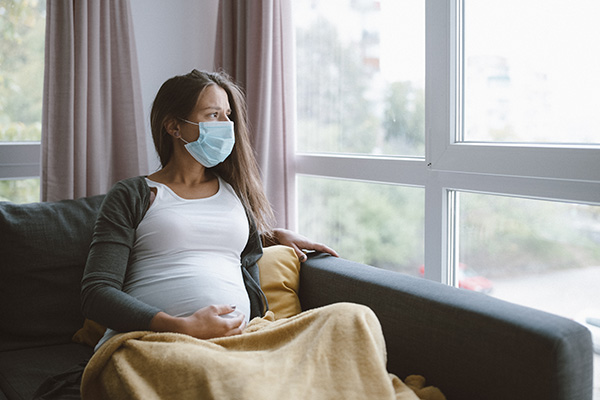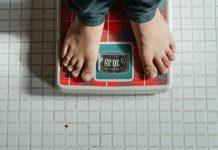Disclosure :: this post is sponsored by Our Lady of Lourdes Women’s & Children’s Hospital and written by Dr. Scott Barrilleaux.
COVID & Pregnancy
 Expecting and worried about COVID-19? You’re not alone.
Expecting and worried about COVID-19? You’re not alone.
Speculation about COVID-19 and its potential impact on pregnancy surfaced soon after initial reports of the pandemic began to rise in early 2020. Almost in tandem came online and social media posts outlining the potential risks to you and your baby — some credible, some not so much.
Here’s what we know.
There’s no way to guarantee zero risk of infection. Moms-to-be who contract COVID-19 are at greater risk for severe illness, even death, according to the latest information provided by the Centers for Disease Control. The novel coronavirus also increases the potential for pre-term birth and other complications.
That likely is not the news you wanted to hear. If you stopped there, your outlook would
remain grim and your anxiety levels would understandably increase. But, the rest of the story paints a much different picture.
It does not appear that a pregnant woman has a greater risk to get COVID-19 compared to
nonpregnant women. The actual risk of a woman dying who does contract COVID-19 is only about a half percent.
There are things that may decrease your risk of infection: Wash up. Mask up. Limit social
interactions. Practice social distancing. Wash your hands for 20 seconds with soap and water, when available. Otherwise, use hand sanitizer with at least 60 percent alcohol. Place the bottles in high traffic areas in your home, so it’s more convenient to sanitize while moving between rooms.
Acadiana is a social culture. We love our family, friends, church families and neighbors. We also love to join in the excitement when a little one is on the way. Keep in mind your risk of
contracting COVID-19 increases with the number of people around you, the closer you interact with them and the duration of those interactions.
Just to clarify: We are not saying you must shelter in place at home and keep all visitors away.
We are saying be realistic, but mindful. Limit the number of people when possible. Ask those who do visit, or who you visit, to wear a mask or remain at least 6 feet away at all times. There are small things that you can do to help ensure the best outcome for you and your baby. Do your best to assess your risk and act accordingly in regards to larger gatherings such as worship, sports social events etc. The use of modern technology may be an alternative for some.
Attend your prenatal physician visits. They are important. Physicians have taken all precautions into account to ensure your safety while visiting their office during the pandemic. Take advantage of video visit options, when available. Take your prenatal vitamins. Get doctor- recommended vaccinations on schedule. You may want to ask your physician’s nurse to switch medications you routinely take to 90-day supplies – anything to limit your exposure.
Follow the CDC guidelines for quarantine and notify your physician’s office if you think you have been exposed to COVID-19. Take note of any warning signs like trouble breathing, persistent chest pain, confusion, inability to stay awake, a blush tint to your lips or face. If any of these arise, call 911 or head to the closest Emergency Department.
A lingering question remains: What about my baby?
Some – not all – babies born to mothers who tested positive for COVID-19 near delivery have tested positive for the virus after birth. Most recovered after having mild or no symptoms. The risk of a mother transmitting COVID to her newborn is low, especially when Mom takes the aforementioned steps to prevent the spread, according to the CDC.
If you do contract the virus, notify your obstetrician’s office. They may want to have you see a specialist to have further testing if you are infected in the early stages of pregnancy, or change your current medications, such as low-dose aspirin, if you are in the third trimester. Your provider can guide you through next steps to ensure the best experience and outcome for you and your baby. Remember, there are things that we can do to help reduce the speed at which the virus spreads. Also remember that of those that contract the virus, almost all will do simply fine. There are outlined signs and symptoms if you experience, you should notify your doctor.
Is the COVID-19 vaccine safe?
The American College of Obstetricians and Gynecologists notes neither approved vaccine has been tested on pregnant women. Still, initial lab tests indicate the vaccine is without significant complications because of its similarity to the Ebola vaccine, which is used in pregnancy. Side effects, such as fever, fatigue, muscle aches and other minor symptoms, occur in nonpregnant individuals, as well, and subside by the third day after receiving the shot.
About Dr. Scott Barilleaux
 Dr. Scott Barilleaux is a Maternal-Fetal Medicine specialist with Our Lady of Lourdes Women’s & Children’s Hospital. Find out more at LourdesRMC.com/expecting.
Dr. Scott Barilleaux is a Maternal-Fetal Medicine specialist with Our Lady of Lourdes Women’s & Children’s Hospital. Find out more at LourdesRMC.com/expecting.


















